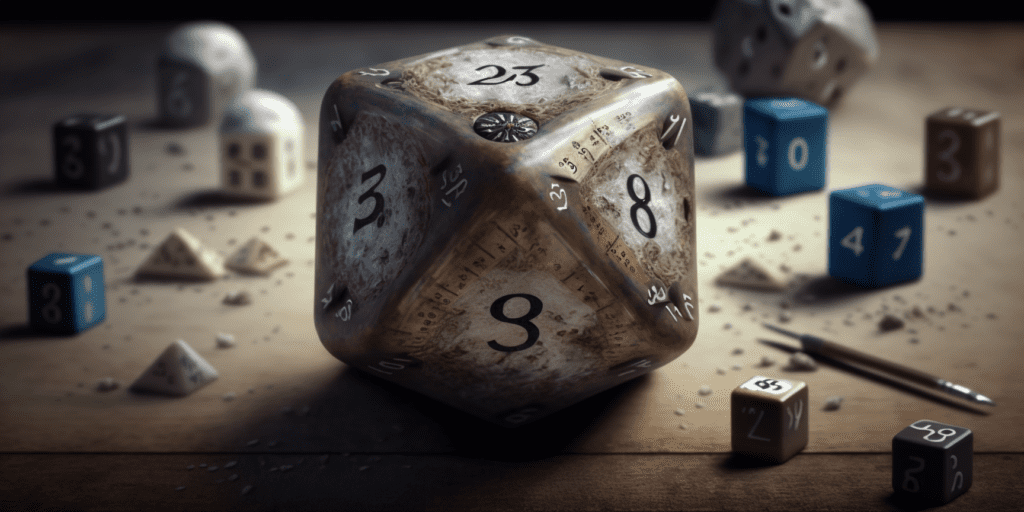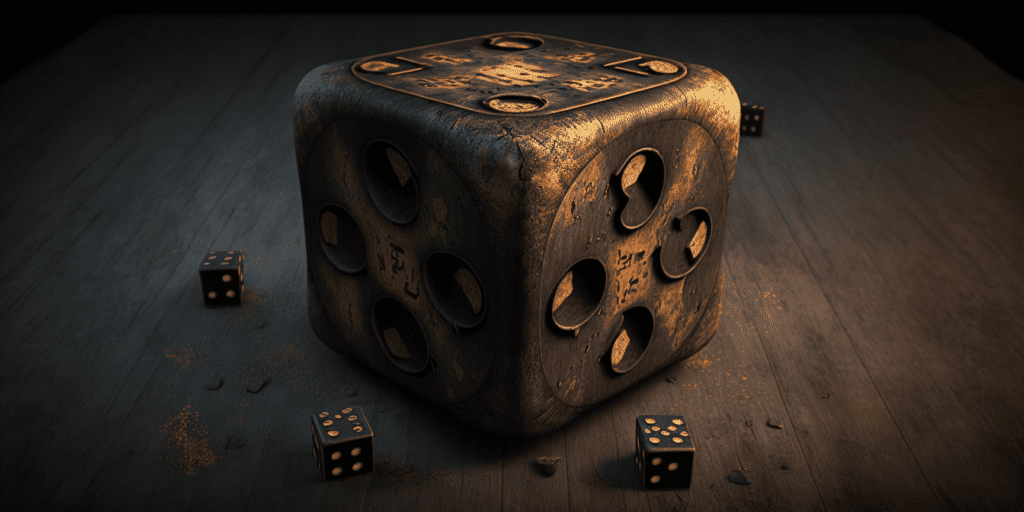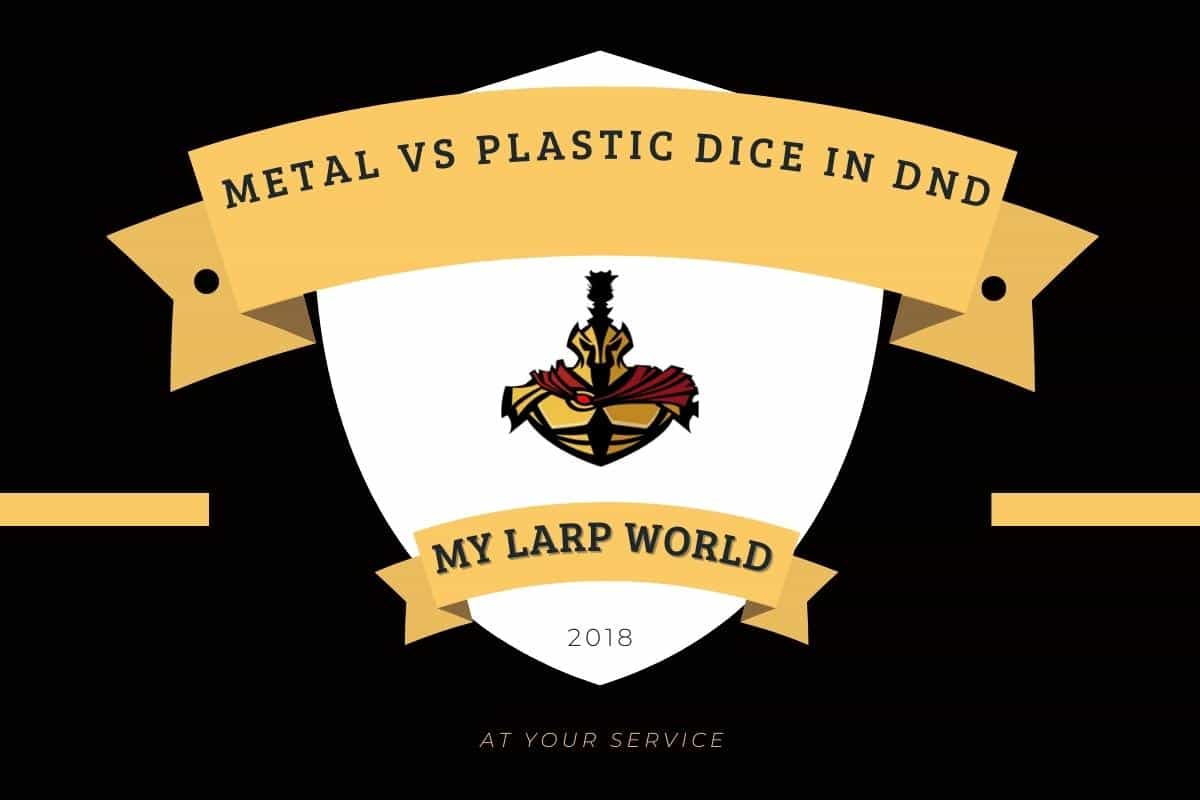Dice are the most important accessory when it comes to DnD, and for a good reason. They are used all the time, and they also come in various materials and colors. So, that begs the question: Is there a dice material that is strictly better than others?
Two of the most common materials that are used for dice are metal and plastic. Let’s go over the differences between them, and try to decide if one is better than the other.
Both dice materials are completely viable to use when playing DnD. The largest differences lie in small things, such as durability, where metal dice have a slight edge, pricing, where metal dice is more expensive, and also the possibility for so-called surface defects, which is more common with plastic dice. However, both work materials work fine in general.
These are all things to consider when comparing the two materials. However, let’s go over this in a bit more detail. Keep reading to find out more about metal and plastic dice in DnD, and much more.
Metal Vs. Plastic Dice In DnD

Let’s get down to some details regarding the differences between metal and plastic dice in DnD. The first, and biggest thing I would consider is durability.
Naturally, metal dice made of for example cast zinc are more durable than plastic dice. This is especially true if you store them together. The metal dice can easily scratch and damage the plastic dice.
As I mentioned previously, however, the durability issue is a minute one, and if handled properly, you can still have plastic dice for a really long time.
The pricing is another big difference. Metal dice are more expensive than plastic ones. The cheaper metal dice generally go for around 20 dollars while plastic dice usually go for around 10. If you’re looking to buy dice with some style, those prices will differ even more.
Plastic dice also sometimes come with some surface indentations, or so-called “defects”. This can lead to dice rolls being skewed to a particular side, making the roll somewhat less random. It’s also fair to point out that this usually isn’t the case.
Then, you also have to consider the feeling of the roll. This can be argued to be important since you will roll your dice an unholy amount of times as you play DnD. The metal dice are a lot heavier as I mentioned previously, which will lead to a different sound and feel when you roll them.
Metal dice also produce a thudding sound as they hit the rolling area, which to me is quite a satisfying feeling. They do have a greater tendency to “chew up” rolling areas, however, so make sure to have a dedicated dice surface, such as a mat.
Plastic dice roll further and make less sound. Depending on the size of your table, the rolling distance may be important. If you have a small table, the metal dice might be more convenient for you.
Finally, the style of dice that you like is important when choosing either metal or plastic dice. Plastic dice come in a lot of different colors and styles, different from the styles and colors possible with metal dice.
What Is The Best Material For DnD Dice?
So, is there really a “best” material for DnD dice? A lot comes down to personal preference, of course. Alloy zinc is one of the heavier kinds of dice, plastic is a cheap option with a lot of styles, and aluminum dice are another sort of metal dice that doesn’t weigh as much.
There are a lot of different materials, and ultimately it comes down to what you like. There isn’t necessarily a material that is objectively the best one, since the differences are small enough to not matter that much.
Of course, if you or a person in your party is prone to throwing dice around – maybe don’t buy the heavy, metal dice. For the safety of your party members, and the interior of the house you’re playing in.
Do Metal Dice Scratch Each Other?

Metal dice can certainly scratch each other and dice of other materials if not cared for properly. Don’t keep them too loose in storage, so that they constantly flip around making contact with each other. Also, don’t shake them too much before rolling.
I would highly recommend that you get yourself a case for your metal dice, such as this one, or this. If you have a case like any of those two, you won’t have to worry about the dice scratching each other.
If you have plastic dice, however, a normal dice bag is fine as they can be carried together without scratching each other.
Also, they can scratch and get dented by hard surfaces when rolling, so the best thing to roll on when using metal dice is a soft mat or something like that. If you have a big, soft mousemat, that’ll do fine.
What Are The Most “Accurate Dice”?
Honestly, this is somewhat of a trifling discussion. There are dice on the market that claim that they are the most accurate, but honestly, if your dice don’t have a bunch of surface defects and indentation, then you’re fine.
Metal dice are generally more accurate because of this since the material isn’t as prone to surface defects and indentation (if handled and cared for properly). Does this mean that plastic dice can’t be trusted? No, it does not.
As for brands, Chessex dice are known to have a good weight and good accuracy. They are also, in general, very good-looking. Which, of course, is a plus.
You might also like:

